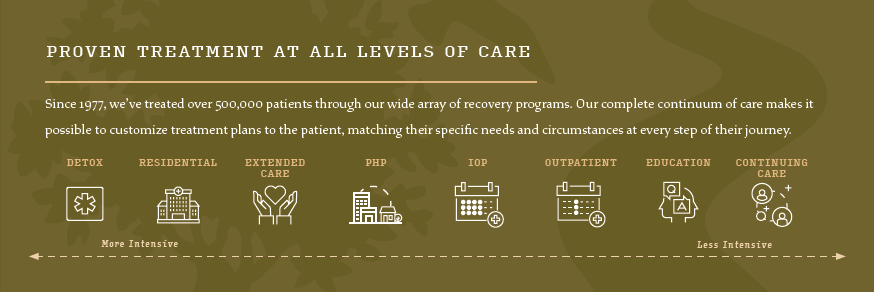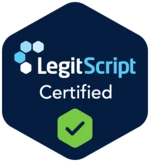Employee Assistance Program For Addiction
What is an Employee Assistance Program?
EAPs are confidential services that connect workers and sometimes their families to helpful resources when facing difficult situations, like stress, mental health concerns, or substance abuse issues.
These programs can help employees handle problems before they seriously impact their work or personal life, giving them a safe space to ask for help without stigma or negative consequences at work.
If you or a loved one needs help, knowing about this option can be the starting point for getting life back on track.
All companies with employees affected by substance abuse are able to reach out to inquire about our EAP program. We offer flexible services that can be customized to your needs.
Eligibility for EAP treatment is a valuable resource for many people seeking help. Most full-time and sometimes part-time employees qualify depending on the contract terms signed with us. Lakeview Health and our sister facilities also offer support to immediate family members living in the same household, like spouses, domestic partners, or children, since personal or addiction issues often impact the whole family. Business also have the ability to allow access to retirees or former employees for a limited period as part of their severance packages.
Because EAP guidelines aren’t always the same everywhere, it’s a good idea to review your company’s specific policy or to see who’s eligible under your plan.
Getting the most from an EAP substance use program depends on whether your needs and circumstances fit how these services are set up. Here’s a closer look at who tends to benefit most:
Employees Still in the Early Stages of Substance UsePeople who are noticing their drinking or drug use is beginning to get out of hand may be good candidates. EAPs provide a judgment-free and confidential entry point to help before serious consequences, such as job loss, accidents, or legal trouble, become worse.
This early intervention approach can catch problems so they’re easier to tackle and recover from. Receiving support before severe addiction sets in often means shorter, more effective treatment.
People Struggling With Stress, Work Pressure, or Burnout Alongside Substance UseEmployees using alcohol or drugs to cope with job demands may find an EAP helps address these problems. Most EAP coordinators understand workplace stress and can provide resources that address all concerns, including counseling, workshops, or coping strategy sessions.
Individuals Worried About Job or Professional ReputationEAPs are built to offer privacy within the workplace, which is important for professionals concerned about stigma or harming their standing at work. An EAP’s emphasis on confidentiality can give workers peace of mind.
These programs shield participants from unnecessary exposure while still connecting them to qualified clinical help. This privacy can be the difference between quietly seeking support and delaying help out of fear.
Those With Family Members Affected by Substance UseMany employees are impacted not because of their own addiction, but because someone close to them – a spouse, partner, or child – is struggling with substance use. EAPs that include family benefits can connect these employees and their families to important resources such as family therapy sessions.
People Looking for Help Navigating Health Benefits or Community ResourcesNavigating insurance, finding rehab centers, or knowing which treatment options are covered by your plan can get confusing fast. EAP counselors often help employees and families figure out next steps, make referrals to appropriate providers, and even help with paperwork.
If you or someone in your household is experiencing any of these situations, reaching out for help is a great idea.
Services Offered Through Trinity River Recovery
Companies that partner with Trinity River and Bradford Health for substance abuse and mental health treatment have a wide range of benefits for their employees. These include;
> Free, online and onsite training sessions
> Substance abuse education programs
> Company, workforce and community partnerships
> Evidence-based treatment for all levels of our substance abuse recovery programs
Additional Services For Employee's
Trinity River also offers more unique programs and services that are especially critical for the addiction recovery process for professionals. These include;
Financial and Legal Services
Addiction often impacts financial stability and can sometimes lead to legal issues. An EAP can offer guidance by connecting staff to expert consultations about budgeting, debt management, family legal matters, or other challenges, addressing risks before they snowball and affect attendance or performance.
Mental Health Counseling Services
Short-term, confidential counseling lets your staff address not only substance use, but also emotional challenges like stress, anxiety, grief, or depression. These sessions equip employees with coping skills that can improve their focus and morale at work and can help identify when someone should be pointed toward more intensive levels of care.
Substance Use Treatment Services
An EAP can provide employees with early intervention for substance use concerns, such as addiction education, screenings, and short-term counseling. The program should also facilitate referrals and coordinated care with external providers, like detox centers, outpatient addiction clinics, or residential rehab. The goal is to guide your team members to the help that best matches their needs.
Intervention Services
We understand people can be hesitant before going into treatment. That’s why at Trinity River, we work to understand and meet people where they are and work alongside certified interventionist professionals in the event that service is needed.
Client Testimonials

EAP Advantages With Trinity River Recovery
Better On-the-Job Performance
Many employees using EAP resources notice they concentrate better and get more done at work. Research has shown that the majority experience a meaningful boost in productivity after reaching out to an EAP.
Lower Rates of Depression
EAP counseling services often lead to significant improvements in emotional wellness. Many workers who have reduced feelings of depression after utilizing the program.
Lower Alcohol-Related Risks
EAP programs have been shown to dramatically reduce high-risk drinking among employees, bringing the rate down from 30% to just 3%. Nearly nine out of ten workers who entered the program for alcohol issues were later assessed as low risk.
Less Missed Work
Employees who make use of EAP services tend to miss fewer days of work. By getting support before problems spiral out of control, absences can decrease notably. In fact, effective workplace wellness and recovery programs have shown to lower related expenses by 30-40%; saving, on average, $5,156 per employee in productivity costs.This includes companies facing average costs of workers with substance use disorders at $3,440 annually and co-occurring symptoms like depression costing $9,450 on average, a combined cost of $12,890.
Recognizing addiction in professionals can be a challenge because most professionals tend to hide their addiction. For some professionals, admitting they have a substance use disorder could mean the end of their career. To keep this from happening, they have to conceal their addiction.
However, some of the signs you can use to recognize addictions in professionals include:
Frequent job changes Falling asleep while on the job Anxious about working long hours Small pupils Extreme financial stress Excessive use of breath mints to mask the smell of alcoholOnce you note the above signs, it is essential that you help your loved one seek addiction treatment for professionals as this can be the beginning of a downward spiral for them.
Effects of addiction in a professional’s life
First, addiction causes you to become detached from your job. The more addicted you are, the harder it becomes to concentrate on your career. It also creates a barrier between you and your loved ones. The one thing every addict lives for is drugs or alcohol. This causes them to lose sight of everyone around them, including their family.
Once this starts to happen, you quickly start putting a strain on your relationships. In the workplace, addiction puts the people you serve at risk. For instance, a pilot under the influence puts his passengers at risk every time he flies a plane. And, the more the pilot drinks, the easier it becomes to cause an accident.
Statistics on EAP Usage for Addiction Treatment
EAPs have the ability to significantly help many employees in all types of workplaces.
Over half of workers in the United States are eligible for EAP benefits, but actual usage sits below 10%, with most estimates around 5% to 7%.
Studies show that companies with active EAPs experience lower staff turnover, often saving up to half of a worker’s yearly salary by avoiding the high costs of finding and training new hires.
For every dollar spent, businesses save three to five dollars thanks to fewer healthcare expenses and lower claims from employees who get EAP support.
EAPs appear most effective when used proactively, leading to a nearly 30% drop in missed days due to stress, addiction, or other life challenges and boosting productivity across the office.
Modern EAPs also help businesses stay competitive, with survey data showing the majority of job seekers now look for companies offering strong well-being programs alongside traditional benefits.
Digital platforms have helped boost program participation, particularly among younger or remote workers. Usage increases when counseling and support are offered through online apps, video calls, and instant chat platforms, and when employers keep reminding teams about these benefits.
Laws/Programs to Protect Employees From Getting Fired While Attending Treatment
Employees who seek addiction treatment are often protected by both federal and state laws and workplace policies aimed at preventing unfair termination. If you need or want to attend treatment, knowing these protections can help you feel safer about getting help.
Family and Medical Leave Act (FMLA)
FMLA allows employees to take up to 12 weeks of unpaid leave every year to deal with serious health conditions, including addiction or mental health treatment.
While you may have to use vacation days or go unpaid, your employer can’t fire you for taking FMLA leave to attend treatment. You must meet certain criteria, like working at a company with 50 or more employees and having been employed there for at least 12 months.
Americans with Disabilities Act (ADA)
The ADA is another federal law that protects workers with disabilities, including those recovering from substance use disorders. If you’re seeking treatment and you’re no longer actively using illegal drugs on the job, the ADA often keeps your employer from dismissing or discriminating against you just for getting help.
Instead, employers are required to provide “reasonable accommodations” where needed – like allowing you to attend treatment sessions at lunch time, for example – unless it poses significant hardship on operations.
Keep in mind that protections from the ADA and FMLA are limited if you’re currently misusing or actively abusing illegal substances. Employers still have the right to terminate or refuse to hire individuals based on ongoing drug use. Workplaces can continue to enforce drug-free policies and require drug testing, even if an employee plans to seek help.
These laws and policies give employees a safer path to treatment by reducing fears about losing their job just for asking for help.
Yes, in most cases, you can continue working while participating in an EAP. Many EAP services, like counseling, referrals, and short-term treatment planning, are designed to work around your job schedule so you can get help without leaving your position. Appointments can often be set outside of normal work hours or even arranged virtually, making it more convenient to access help discreetly.
Choosing to address addiction or personal challenges through an EAP is a big step, and knowing your options matters. If you or someone you care about is struggling, help is more accessible and confidential than you think.
We value our clients. We will always be available to help. Contact us today at 866 552 6557, and we can help you overcome addiction with our specialized addiction treatment for professionals.



